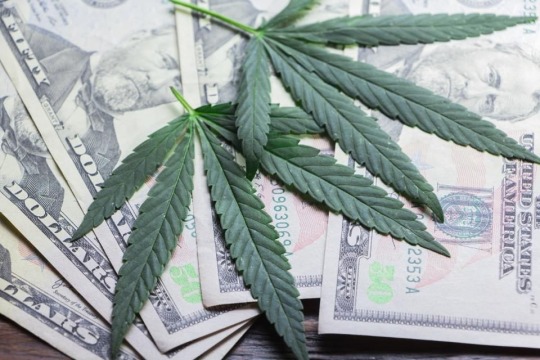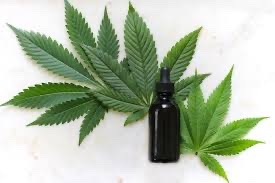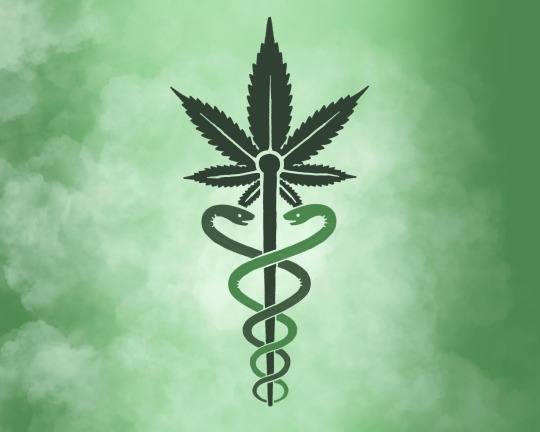Text
The Legalization of Marijuana
For my final post, I will talk about how I would go about legalizing marijuana federally. To do this, the first thing I must do is amend the Controlled Substances Act of 1970, and demote marijuana from a schedule one drug to at least a schedule three drug.
“The Controlled Substances Act (CSA) Title II of the Comprehensive Drug Abuse Prevention and Control Act of 1970 is the federal U.S. drug policy under which the manufacture, importation, possession, use and distribution of certain narcotics, stimulants, depressants, hallucinogens, anabolic steroids and other chemicals is regulated” (Drugs.com). According to the Controlled Substances Act, Marijuana is a schedule one drug (Drugs.com). This means that according to the government, marijuana is just as bad as Heroin, LSD, and MDMA. The funny thing about that is that while marijuana is a schedule one drug, Crack Cocaine is not.
After the Controlled Substances Act is amended and marijuana is demoted from schedule one to schedule three, all 50 states must legalize marijuana for medical and recreational use. Once this is done, more research on the health benefits can be begin, as well as the taxation of marijuana. The legalization of marijuana is a huge topic into today’s society, and if it is legalized, the government would profit, the people would be happy, and more research on the health benefits of marijuana can be conducted. Steps have already been taken be the federal government with the MORE Act, and we as a people can make the government legalize marijuana.

“CSA Schedules.” Drugs.com, www.drugs.com/csa-schedule.html.
“List of Schedule 1 Drugs.” Drugs.com, www.drugs.com/article/csa-schedule-1.html
0 notes
Text
The Legalization of Marijuana
I have shown some benefits of marijuana for the body, but now it's time to talk about the benefits of legalizing marijuana for the economy. According to Jeffrey Miron, a pair of economics at Harvard University, "One issue in this debate is the effect of marijuana prohibition on government budgets. Prohibition entails direct enforcement costs. If marijuana were legal, enforcement costs would be zero, and governments could levy taxes on the production and sale of marijuana. Thus, government expenditure would decline and tax revenue would increase. The reduction in expenditure constitutes a net saving in resources as well; that is, these funds would be available for other uses. The increase in tax revenues would be a transfer from drug users and producers to the general public” (Miron).
Another benefit of legalizing marijuana would be the expungement of marijuana related charges from people in prison, and this would either release those people from prison, or reduce their sentence times drastically, which would then lead to the government spending less money on charging, arresting, prosecuting, and incarcerating people for a marijuana related charges. Now this is all hypothetical thinking, but it is a very realistic possibility if the government legalized marijuana. In my next, and final post, I am going to hypothesize about how I would go about legalizing marijuana.

Miron, Jeffrey. The Pot Book: a Complete Guide to Cannabis: Its Role in Medicine, Politics, Science, and Culture. Edited by Julie Holland. Park Street Press, 2010.
0 notes
Text
The Legalization of Marijuana
Along with being an effective pain killer in patients with multiple sclerosis and other nerve and chronic pains, marijuana has been found by many studies to not effect the brain in any way. According to an article from drugabuse.gov, some studies have shown that exposure to marijuana from a young age has effected the brain no differently from the brain from a person that does not use marijuana (National Institute on Drug Abuse). An argument from some anti marijuana advocates is that marijuana is a gateway drug, but this argument has no scientific evidence to support it. Other people argue that marijuana will make the population lazy and not do anything, but many marijuana users have reported that they are able to function normally while using marijuana. The only downside to legalizing marijuana is that the revenues from taxes on other substances like alcohol and tobacco will drop. Another thing to consider is that marijuana is impossible to overdose on, according to the CDC (centers for disease control). Along with this, an article from the Huffington Post says that there have been zero deaths from a marijuana overdose.

Bellware, Kim. “Here's How Many People Fatally Overdosed On Marijuana Last Year.” HuffPost, HuffPost, 30 Dec. 2015, www.huffpost.com/entry/marijuana-deaths-2014_n_56816417e4b06fa68880a217.
“Data and Statistics.” Centers for Disease Control and Prevention, Centers for Disease Control and Prevention, 20 Apr. 2018, www.cdc.gov/marijuana/data-statistics.htm.
National Institute on Drug Abuse. “What Are Marijuana's Long-Term Effects on the Brain?” NIDA, July 2019, www.drugabuse.gov/publications/research-reports/marijuana/what-are-marijuanas-long-term-effects-brain.
0 notes
Text
The Legalization of Marijuana
As of right now, Marijuana is classified as a schedule I drug by the federal government. This must change. According to a report by the National Academy of Sciences, Engineering, and Medicine, Marijuana and related cannabinoids are effective antiemetics for adults with chemotherapy-induced nausea and vomiting. Also in the report, adults with chronic pain reports significant pain reduction after being treated with cannabis or cannabinoids (National Academy Press).
Cannabis has been used for thousands of years, and was available as a licensed medicine in the US before the American Medical Association removed it from the 12th edition of the U.S Pharmacopeia (National Academy Press).
According to the Harvard Health Blog, medical marijuana is impossible to overdose on and is far less addictive than opioids, and it can be used in place of NSAIDS such as Advil or Aleve. The most common use of marijuana is pain relief. Marijuana is not strong enough to relieve post-surgical pain or the pain from a broken bone, but it is highly effective in combating chronic pain. Chronic pain affects millions of Americans every year, and the number continued to rise. Along with easing chronic pain, medical marijuana appears to effectively ease the pain of multiple sclerosis, and nerve pain in general. Contrary to opioids, which are heavy sedatives, marijuana allows to user to go on with their daily tasks and not feel completely out of it. There are videos of patients with Parkinson's disease taking cannabinoids and the shaking of their muscles stops almost immediately, but these videos have not been backed by scientific fact.
Medical marijuana must be legalized in all 50 states.

Grinspoon, Peter. "Medical Marijuana." Harvard Health Blog, 25 June 2019, www.health.Harvard.edu/blog/medical-marijuana-2018011513085
"Marijuana and Cannabinoids." National Center for Complementary and Integrative Health, U.S. Department of Health and Human Services, 25 Oct. 2018, nccih.nih.gov/health/marijuana.
1 note
·
View note